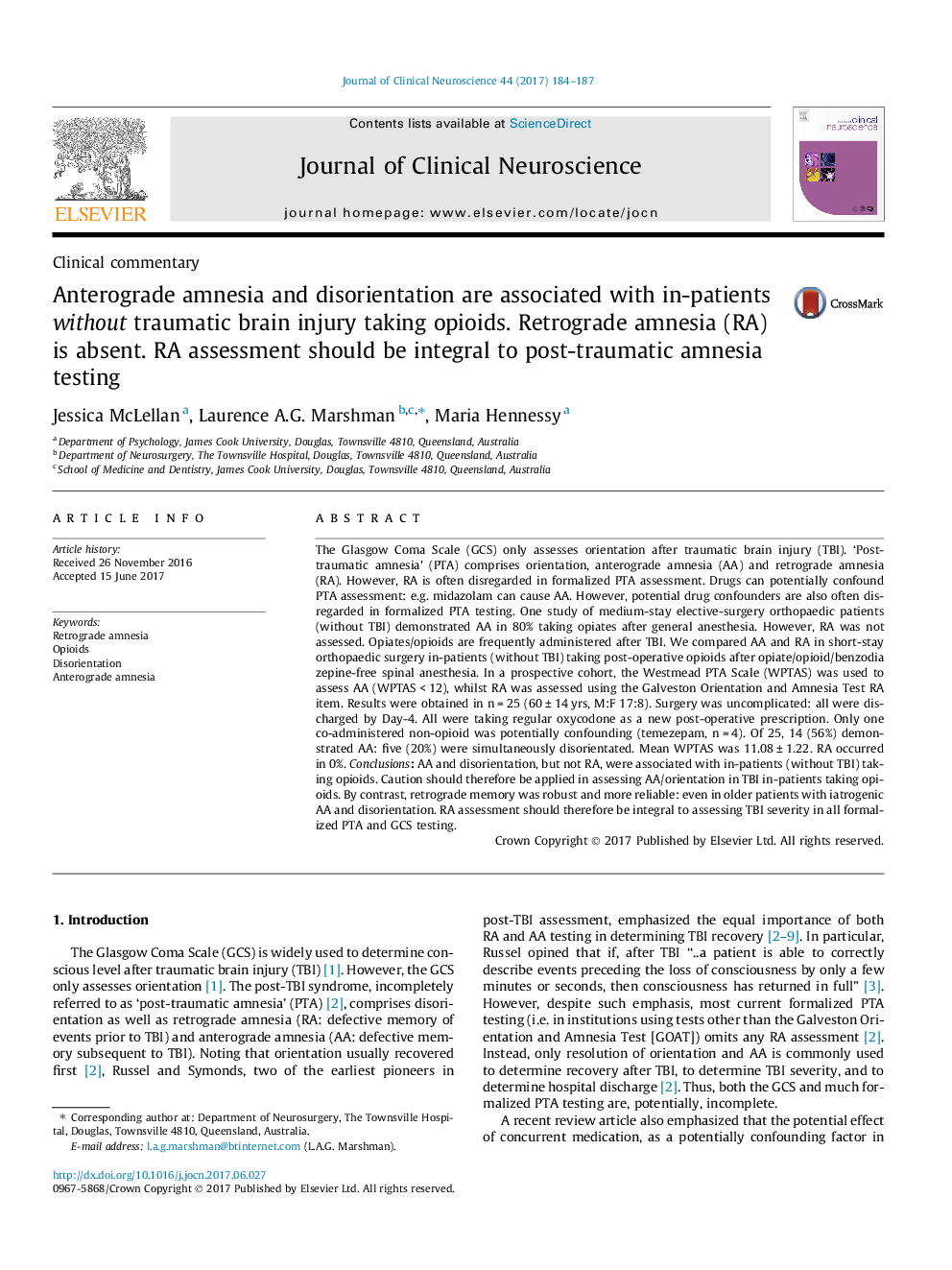| Article ID | Journal | Published Year | Pages | File Type |
|---|---|---|---|---|
| 5629528 | Journal of Clinical Neuroscience | 2017 | 4 Pages |
â¢Although PTA = [disorientation + AA + RA], RA is usually disregarded.â¢AA has been associated with opiates in non-TBI: however, RA has not been tested.â¢In our study, AA and disorientation were associated with opioids, but RA was absent.â¢Retrograde memory is singularly robust during post-operative opioid treatment.â¢RA assessment should be integral to routine PTA and GCS testing.
The Glasgow Coma Scale (GCS) only assesses orientation after traumatic brain injury (TBI). 'Post-traumatic amnesia' (PTA) comprises orientation, anterograde amnesia (AA) and retrograde amnesia (RA). However, RA is often disregarded in formalized PTA assessment. Drugs can potentially confound PTA assessment: e.g. midazolam can cause AA. However, potential drug confounders are also often disregarded in formalized PTA testing. One study of medium-stay elective-surgery orthopaedic patients (without TBI) demonstrated AA in 80% taking opiates after general anesthesia. However, RA was not assessed. Opiates/opioids are frequently administered after TBI. We compared AA and RA in short-stay orthopaedic surgery in-patients (without TBI) taking post-operative opioids after opiate/opioid/benzodiazepine-free spinal anesthesia. In a prospective cohort, the Westmead PTA Scale (WPTAS) was used to assess AA (WPTAS < 12), whilst RA was assessed using the Galveston Orientation and Amnesia Test RA item. Results were obtained in n = 25 (60 ± 14 yrs, M:F 17:8). Surgery was uncomplicated: all were discharged by Day-4. All were taking regular oxycodone as a new post-operative prescription. Only one co-administered non-opioid was potentially confounding (temezepam, n = 4). Of 25, 14 (56%) demonstrated AA: five (20%) were simultaneously disorientated. Mean WPTAS was 11.08 ± 1.22. RA occurred in 0%. Conclusions: AA and disorientation, but not RA, were associated with in-patients (without TBI) taking opioids. Caution should therefore be applied in assessing AA/orientation in TBI in-patients taking opioids. By contrast, retrograde memory was robust and more reliable: even in older patients with iatrogenic AA and disorientation. RA assessment should therefore be integral to assessing TBI severity in all formalized PTA and GCS testing.
